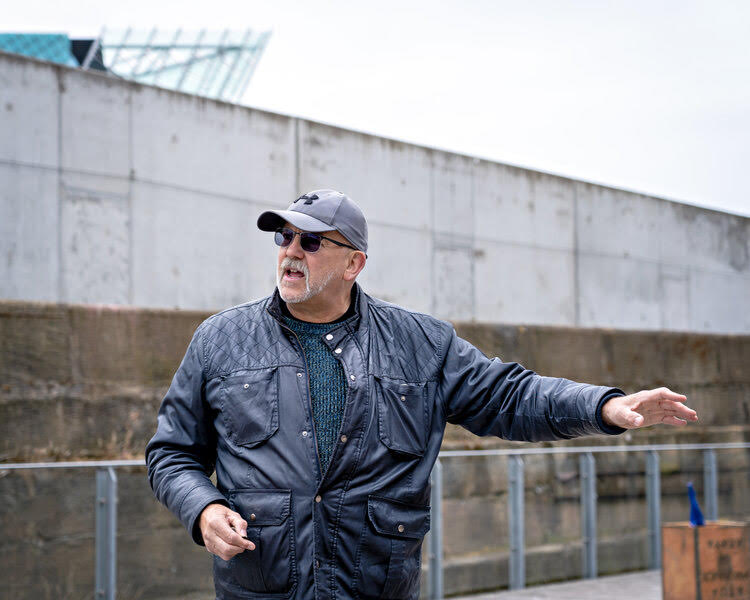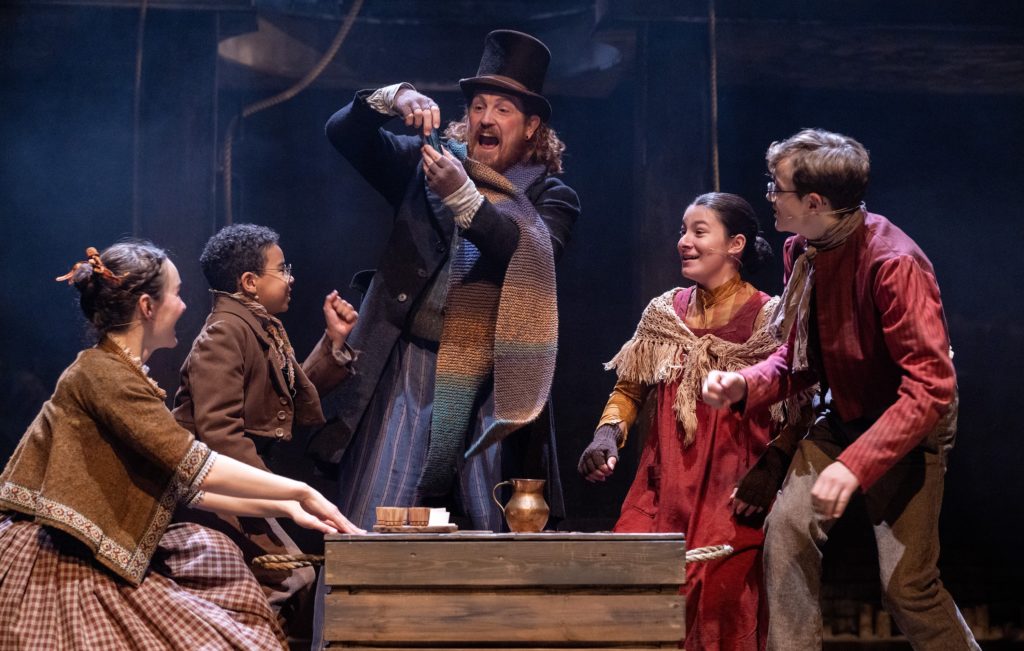
DEBORAH McAndrew’s wondrous, thunderous adaptation of Charles Dickens’s 1843 novella was first seen as part of Hull Truck’s 2017 Year of Exceptional Drama for Hull’s year as the UK’s City of Culture.
“Exceptional drama”? As brags go, it might have been up there with Liverpool lip Ian McCulloch proclaiming Echo & The Bunnymen’s 1984 opus Ocean Rain to be “the greatest record ever made”… before it even came out, but A Christmas Carol backed up that braggadocio.
It was indeed “exceptional”, going on to play West Yorkshire Playhouse the next winter, again under Amy Leach’s direction, and subsequently re-emerging like Marley’s ghost each winter in a variety of versions.

When it came to artistic director Mark Babych contemplating Hull Truck’s 50th anniversary season, in his words, “it felt the perfect opportunity in a year of examining our past, present and future to combine the many different elements that evolved over the years to make this production”.
A Christmas Carol is duly revisited, in association with Leeds Playhouse, retaining McAndrew’s gilded script, Hayley Grindle’s set and costume design, Josh Carr’s lighting, Ed Clarke’s sound design and musical director John Biddle’s evocative music. Northern Broadsides stalwart Andrew Whitehead returns too as chain-rattling deceased business partner Jacob Marley and party-hosting Mr Fezziwig.
Sameena Hussain, associate director at Leeds Playhouse, takes over the director’s seat from Leach, having served as her associate on the Leeds production.
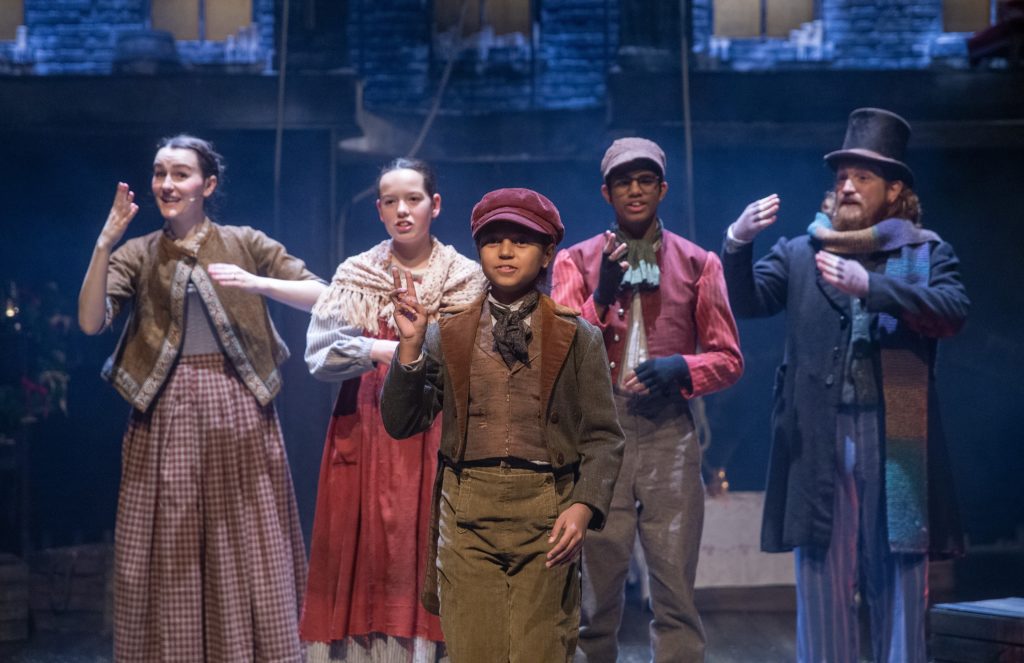
She retains much of what made Leach-McAndrew’s exhilaratingly imaginative collaboration so spooky, humorous and magical, while adding two new elements: movement direction by Xolani Crabtree, at once full of vitality but haunting too, and British Sign Language, both within the cast and in the omnipresence of a BSL signer in Dickensian attire. Providing another layer of language, it is impactful physically, theatrically and emotionally too.
Hull-born Adam Bassett, who appeared as Macduff in Leeds Playhouse’s Macbeth earlier this year, plays Scrooge’s put-upon clerk, Bob Cratchit, while fellow deaf actor Emma Prendergast’s Mrs Cratchit communicates in both BSL and spoken English.
Prendergast’s is the strongest Hull accent in this staging on the Hull dockside, whose atmosphere is set before the start and at the interval with the sound of lapping water and gulls, together with the Yorkshire catmint of brass-band carols.
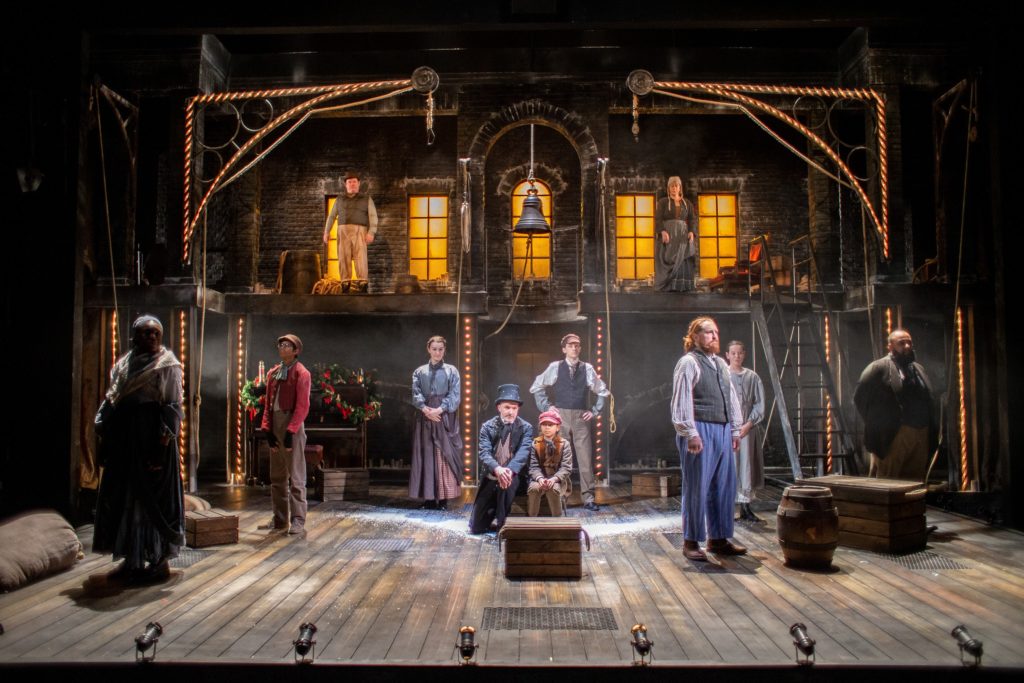
Prompted by the Victorian warehouses still to be found around the East Riding city, McAndrew’s “uniquely Hull twist” to Dickens’s winter tale of second chances has transformed Ebenezer Scrooge (Jack Lord) into the money-counting owner of one such large dockside building. Sea shanties pepper Biddle’s score too.
As in 2017, Grindle’s highly detailed yet spacious set of the warehouse’s brick frontage, the dock bell, the ropes and sacks of the quayside, and fish crates stacked up for Scrooge and Cratchit’s desks, are complemented by Carr’s lighting, with a golden glow in the frosty windows and row upon row of candles that play to the air of ghostliness.
In the bleak, strike-struck midwinter of 2022, Babych’s highlighting of Dickens’s “comment on poverty, social deprivation, and the importance of giving people the opportunity to thrive” has resonance anew, and so this revival is even more moving, as well as being a delightfully musical and beautifully told piece of family theatre.
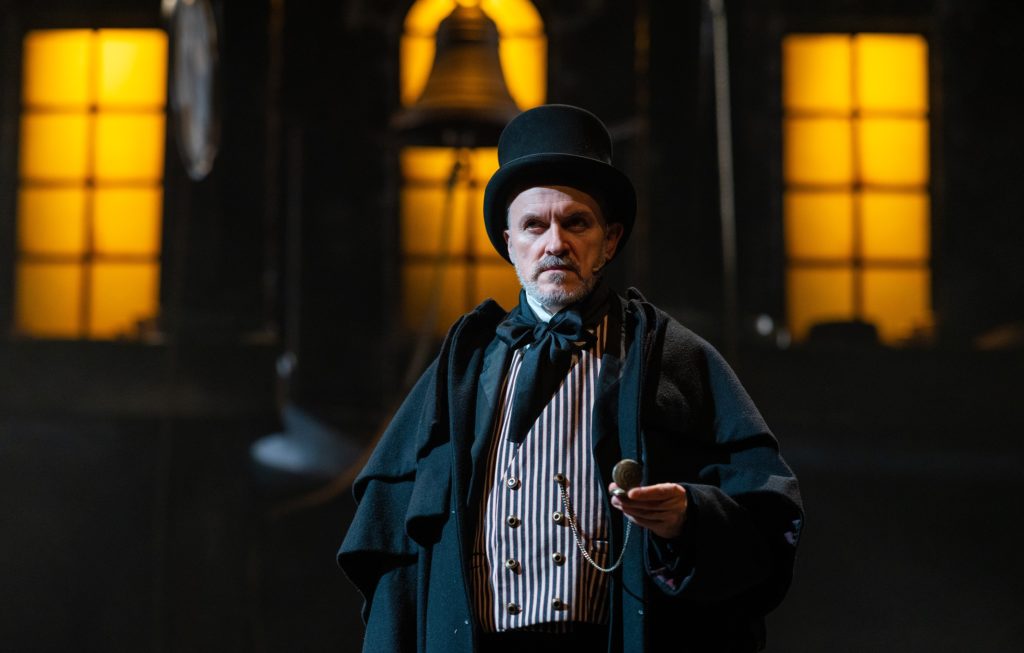
In a Hull divided between the haves and the have nothings, McAndrew’s urban nocturnal drama nods to the tradition of Victorian storytelling, full of richly evocative language that heightens scenes of sadness – never more so than in the young Scrooge’s (Mark Donald) terminated engagement to Belle (Prendergast) – yet it is theatrically bold too.
Scenes with the ghosts are presented with a magician’s flourish, Gothic frights and even the dark heart of the Grand Guignol, typified by Whitehead’s Marley amid graveyard ghosts galore.
Yet these ghosts can be playful too, especially when surrounding Scrooge in his nightgown, removing his night cap. Once he takes his first steps on the road to redemption, as Lord’s miserable miser swaps that cap symbolically for a Santa hat, his desire to learn, to make amends, is more immediately transformative than in some interpretations.
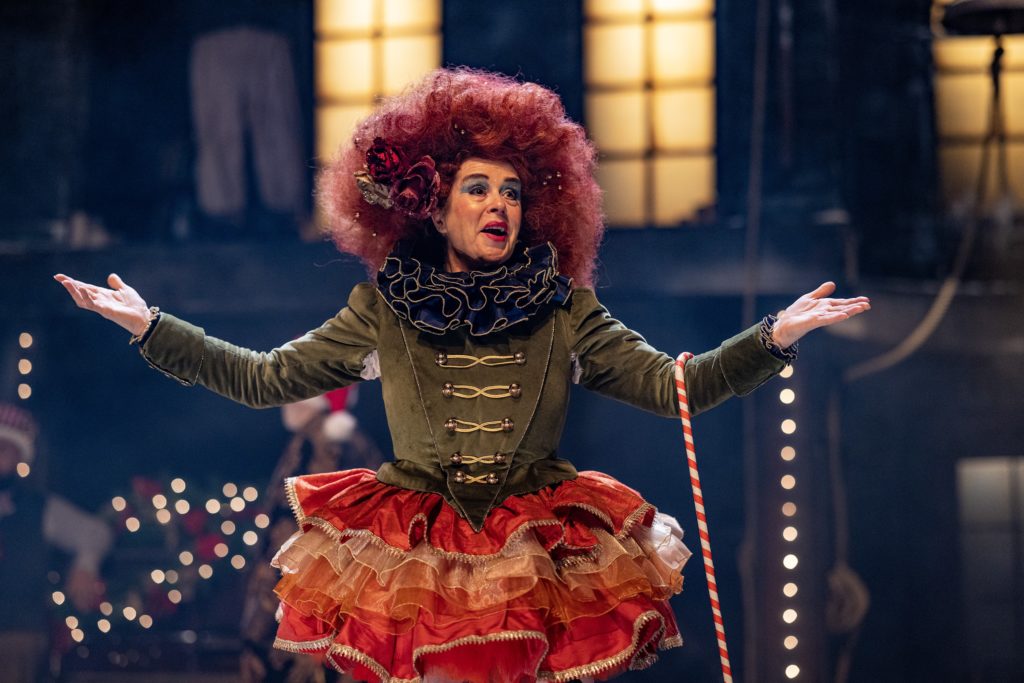
Nothing is more unconventional in McAndrew’s reinvention than the Ghost of Christmas Present (Lisa Howard) becoming a dapper circus act-cum-music hall turn, possessed of a line in Christmas gags cornier than a cracker punchline. Howard evokes the Good Old Days stars of yore at Leeds City Varieties yet captures the grave need to crack on too in an elegant, eloquent production that moves ever more briskly against the tides of time.
Welcome back Hull Truck’s A Christmas Carol, the most popular of Christmas ghost stories, told even better than before.
A Christmas Carol runs at Hull Truck Theatre until December 31. Performances: December 22, 23, 28, 29 and 30, 2pm and 7pm; December 24 and 31, 11am and 4pm. Low availability for all shows. Box office: 01482 323638 or hulltruck.co.uk.
Did you know?
YORK playwright Mike Kenny is writing the script for Hull Truck Theatre’s 2023 family Christmas production, Pinocchio, as well as co-writing the lyrics with composer and musical director John Biddle. Tickets will go on sale next March. Watch this space for more details.



